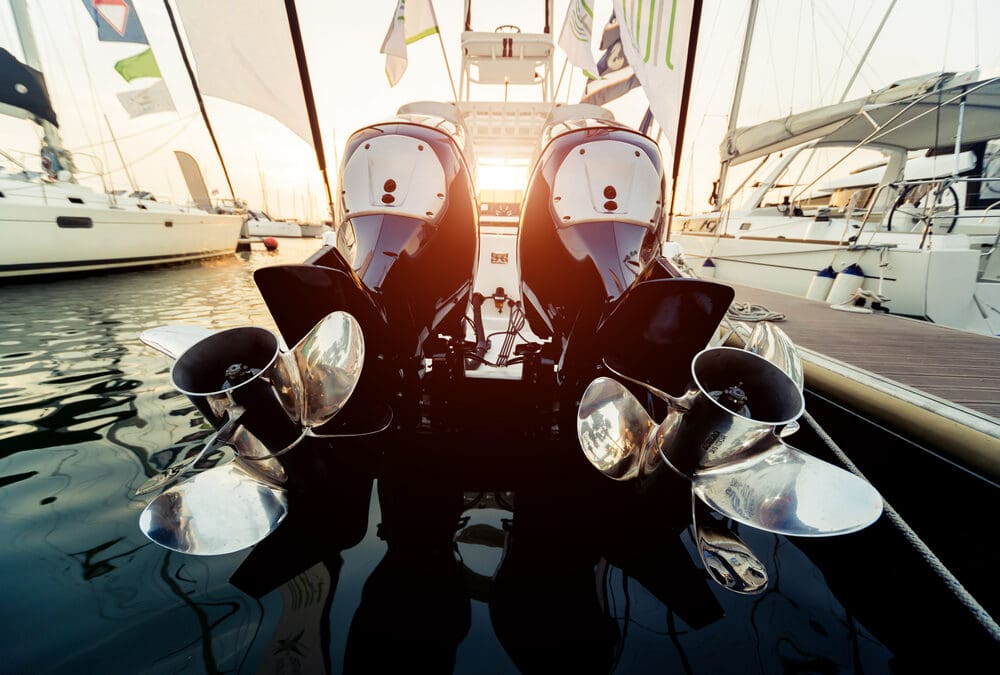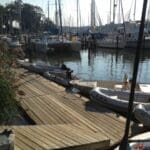Do you know how long the marine engine on your boat is going to last? There are two kinds of marine engines—gasoline and diesel—and one lasts far longer than the other. On average, a marine diesel engine lasts about 5,000 hours, while a gasoline engine lasts for 1,500 hours. What does that mean for you and your vessel? Is there any way to extend the lifespan of the engine?
Here is what you need to know about the life expectancy of marine engines, as well as how to get more work hours out of them.
About Gasoline Marine Engines
The main advantage of owning a boat with a gas-powered marine engine is that they are cheap to purchase and overhaul. The downside is that these engines last about 1,500 hours, which is half the lifespan of a car’s engine.
For longevity, gasoline engines should be regularly operated and routinely maintained. However, that is rarely the case when it comes to boats. Most owners launch their boats a handful of times a year, and this leads to the engine sitting for a long period. Non-use puts an untold amount of strain on these kinds of engines, leading to a shorter than average lifespan.
About Diesel Marine Engines
A boat that has a diesel marine engine is going to be far more expensive than one with a gas engine, but there is a reason for that. Diesel marine engines are crafted to be more durable: bigger cranks and crankshafts, piston cooling jets, and greater oil capacity. With proper maintenance, a diesel engine can last between 6,000 to 8,000 hours. In other words, a single diesel engine is worth the lifetime of a boat—in most cases.
Diesel engines are also more economical and safer to operate than gasoline engines, making them the preferred variety within the boating community.
Lifespan of Outboard vs Inboard Engines
Although the construction of inboard and outboard marine engines is not any different, they do age at different rates. Outboard motors are mounted on the outside of the craft, creating more space inside the ship for people. On the other hand, inboard engines are installed within the boat. Both are in contact with water constantly, so the kind of water the boat is primarily used in will have an impact on these engines.
Interestingly, outboard motors run for around 3,000-4,000 hours. Inboard engines last far longer because they come with flushing and cooling systems. On average, inboard diesel marine engines last about 5,000 to 8,000 hours, depending on maintenance.
Factors That Impact The Longevity of a Marine Engine
As with any kind of engine, just because they can last for 8,000 hours, doesn’t automatically mean that is what will happen. Diesel and gasoline marine engines can both fail rapidly when not maintained properly. Here are some factors that subtract from an engine’s life expectancy:
Poor Engine Maintenance
Neglecting an engine is the quickest way to reduce its lifespan to zero. You should be regularly inspecting your marine engine, installing the proper sensors, changing the oil every 150 hours, and running the engine routinely throughout the year. Also, do not forget about the filters. Should such elements on the filter get to the engine, it will cause a dangerous accumulation and may cause rust.
Inconsistent Use
Both gasoline and diesel marine engines want to be run. Letting the fuel sit or keeping the engine cool can be harmful. Therefore, run the engine long enough to get the oil and fuel warm, as that will lubricate the gears inside evenly. Keep in mind that diesel engines have a low RPM, leading to a longer warm-up time.
Improper Engine Load
If an engine is trying to tackle a heavier load than recommended, it is going to strain to function. That will generate more wear and tear, deducting from the overall lifespan of the engine.
Poor Cooling
Ensure that the marine engine is cooling properly, particularly if it is a diesel engine. Nearly half of all diesel marine engines become scrap at an accelerated rate because of a poor cooling system. Diesel engines contain far more high piston compression than a gasoline engine, which generates loads of heat. If the cooling system is not functioning optimally, it can shave hours off your engine’s life.
Water Type
Is your boat used in salt, brackish, or freshwater? One of the worst environments is salt water, as there are elements in the water that are corrosive to metal. This is why engines often have a flushing system to keep the salt water from damaging the motor. Unfortunately, marine engines used primarily in salt water have a shorter lifespan than those used in brackish or freshwater.
However, don’t forget that brackish water also contains salt in varying quantities. Any amount of salt will adversely affect the marine engine.
Freshwater is the friendliest towards your marine engine, as there is no salt to cause corrosion. Marine engines that are used only in freshwater are going to have the longest lifespan.
Let Us Help You Find Your Dream Boat
In conclusion, gasoline marine engines last around 1,500 hours, and diesel marine engines have a life expectancy of 5,000 hours. Maintenance can improve these numbers greatly, so be sure to keep up with your boat and use it often! Account for the engine type when shopping for your next boat. If you need help weighing your options and choosing the right marine engine, give Yacht Brokers of Annapolis a call. Our friendly team has plenty of experience with boating, and we are more than happy to answer your questions.





